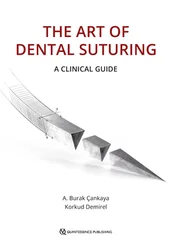presentment of a subject, without being the only parts. Strong
meat may not be as attractive as ices, but all depends on the
appetite and the stage of the meal.
You can not deliver an aggressive message with caressing little strokes.
No! Jab it in with hard, swift solar plexus punches. You cannot strike
fire from flint or from an audience with love taps. Say to a crowded
theatre in a lackadaisical manner: "It seems to me that the house is on
fire," and your announcement may be greeted with a laugh. If you flash
out the words: "The house's on fire!" they will crush one another in
getting to the exits.
The spirit and the language of force are definite with conviction. No
immortal speech in literature contains such expressions as "it seems to
me," "I should judge," "in my opinion," "I suppose," "perhaps it is
true." The speeches that will live have been delivered by men ablaze
with the courage of their convictions, who uttered their words as
eternal truth. Of Jesus it was said that "the common people heard Him
gladly." Why? "He taught them as one having _AUTHORITY_." An audience
will never be moved by what "seems" to you to be truth or what in your
"humble opinion" may be so. If you honestly can, assert convictions as
your conclusions. Be sure you are right before you speak your speech,
then utter your thoughts as though they were a Gibraltar of
unimpeachable _truth_. Deliver them with the iron hand and confidence of
a Cromwell. Assert them with the fire of _authority_. Pronounce them as
an _ultimatum_. If you cannot speak with conviction, be silent.
What force did that young minister have who, fearing to be too dogmatic,
thus exhorted his hearers: "My friends--as I assume that you are--it
appears to be my duty to tell you that if you do not repent, so to
speak, forsake your sins, as it were, and turn to righteousness, if I
may so express it, you will be lost, in a measure"?
Effective speech must reflect the era. This is not a rose water age, and
a tepid, half-hearted speech will not win. This is the century of trip
hammers, of overland expresses that dash under cities and through
mountain tunnels, and you must instill this spirit into your speech if
you would move a popular audience. From a front seat listen to a
first-class company present a modern Broadway drama--not a comedy, but a
gripping, thrilling drama. Do not become absorbed in the story; reserve
all your attention for the technique and the force of the acting. There
is a kick and a crash as well as an infinitely subtle intensity in the
big, climax-speeches that suggest this lesson: the same well-calculated,
restrained, delicately shaded force would simply _rivet_ your ideas in
the minds of your audience. An air-gun will rattle bird-shot against a
window pane--it takes a rifle to wing a bullet through plate glass and
the oaken walls beyond.
_When to Use Force_
An audience is unlike the kingdom of heaven--the violent do not always
take it by force. There are times when beauty and serenity should be the
only bells in your chime. Force is only one of the great extremes of
contrast--use neither it nor quiet utterance to the exclusion of other
tones: be various, and in variety find even greater force than you could
attain by attempting its constant use. If you are reading an essay on
the beauties of the dawn, talking about the dainty bloom of a
honey-suckle, or explaining the mechanism of a gas engine, a vigorous
style of delivery is entirely out of place. But when you are appealing
to wills and consciences for immediate action, forceful delivery wins.
In such cases, consider the minds of your audience as so many safes that
have been locked and the keys lost. Do not try to figure out the
combinations. Pour a little nitro glycerine into the cracks and light
the fuse. As these lines are being written a contractor down the street
is clearing away the rocks with dynamite to lay the foundations for a
great building. When you want to get action, do not fear to use
dynamite.
The final argument for the effectiveness of force in public speech is
the fact that everything must be enlarged for the purposes of the
platform--that is why so few speeches read well in the reports on the
morning after: statements appear crude and exaggerated because they are
unaccompanied by the forceful delivery of a glowing speaker before an
audience heated to attentive enthusiasm. So in preparing your speech you
must not err on the side of mild statement--your audience will
inevitably tone down your words in the cold grey of afterthought. When
Phidias was criticised for the rough, bold outlines of a figure he had
submitted in competition, he smiled and asked that his statue and the
one wrought by his rival should be set upon the column for which the
sculpture was destined. When this was done all the exaggerations and
crudities, toned by distances, melted into exquisite grace of line and
form. Each speech must be a special study in suitability and proportion.
Omit the thunder of delivery, if you will, but like Wendell Phillips put
"silent lightning" into your speech. Make your thoughts breathe and your
words burn. Birrell said: "Emerson writes like an electrical cat
emitting sparks and shocks in every sentence." Go thou and speak
likewise. Get the "big stick" into your delivery--be forceful.
1. Illustrate, by repeating a sentence from memory, what is meant by
employing force in speaking.
2. Which in your opinion is the most important of the technical
principles of speaking that you have studied so far? Why?
3. What is the effect of too much force in a speech? Too little?
4. Note some uninteresting conversation or ineffective speech, and tell
why it failed.
5. Suggest how it might be improved.
6. Why do speeches have to be spoken with more force than do
conversations?
7. Read aloud the selection on page 84, using the technical principles
outlined in chapters III to VIII, but neglect to put any force behind
the interpretation. What is the result?
8. Reread several times, doing your best to achieve force.
9. Which parts of the selection on page 84 require the most force?
10. Write a five-minute speech not only discussing the errors of those
who exaggerate and those who minimize the use of force, but by imitation
show their weaknesses. Do not burlesque, but closely imitate.
11. Give a list of ten themes for public addresses, saying which seem
most likely to require the frequent use of force in delivery.
12. In your own opinion, do speakers usually err from the use of too
much or too little force?
13. Define (a) bombast; (b) bathos; (c) sentimentality; (d) squeamish.
14. Say how the foregoing words describe weaknesses in public speech.
15. Recast in twentieth-century English "Hamlet's Directions to the
Players," page 88.
16. Memorize the following extracts from Wendell Phillips' speeches, and
deliver them with the of Wendell Phillips' "silent lightning" delivery.
We are for a revolution! We say in behalf of these hunted
lyings, whom God created, and who law-abiding Webster and
Winthrop have sworn shall not find shelter in Massachusetts,--we
say that they may make their little motions, and pass their
little laws in Washington, but that Faneuil Hall repeals them in
the name of humanity and the old Bay State!
* * * * *
Читать дальше












